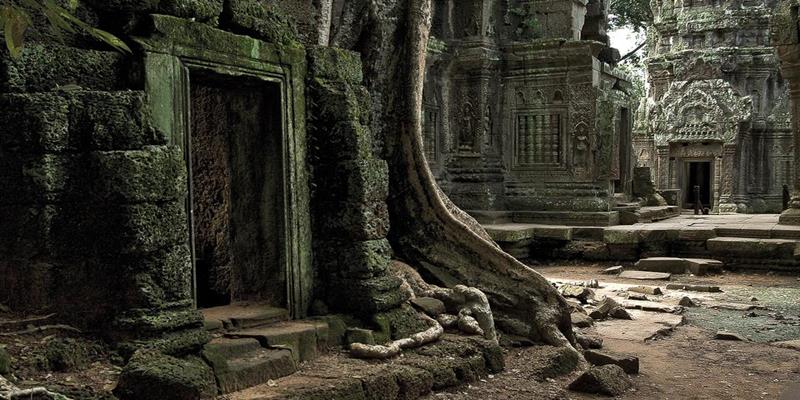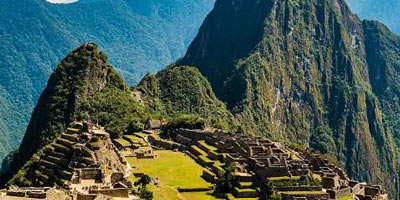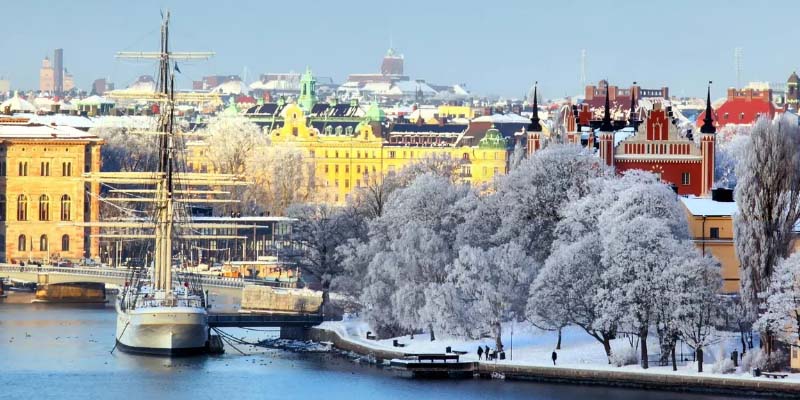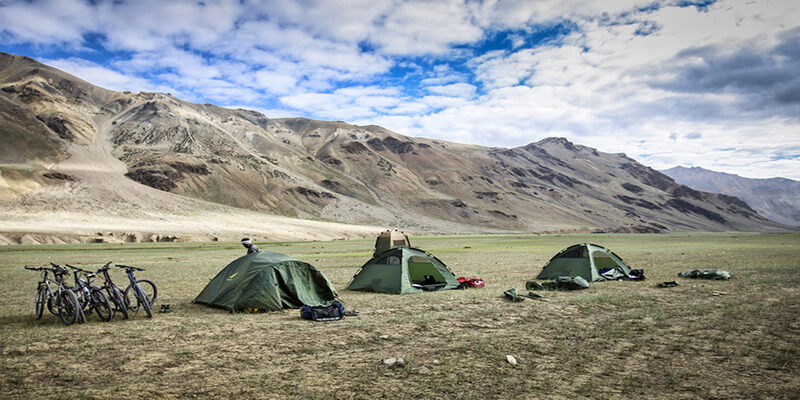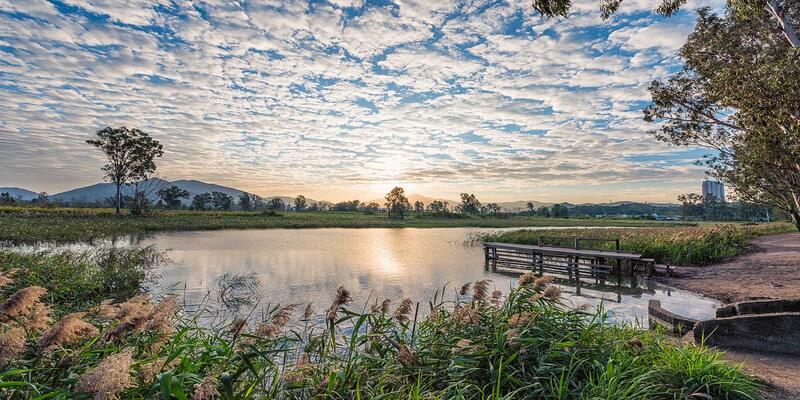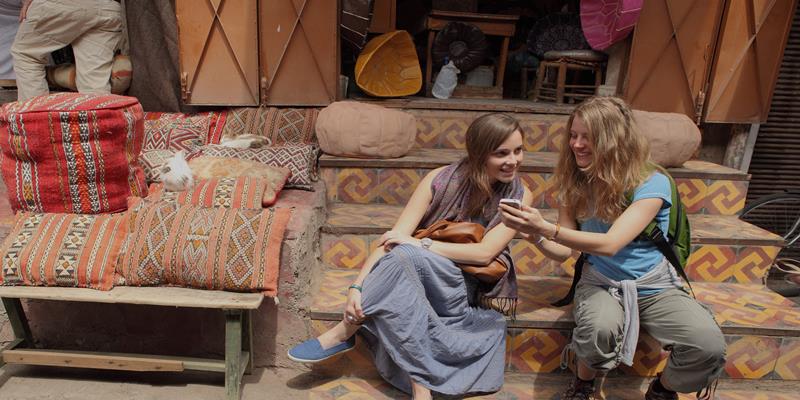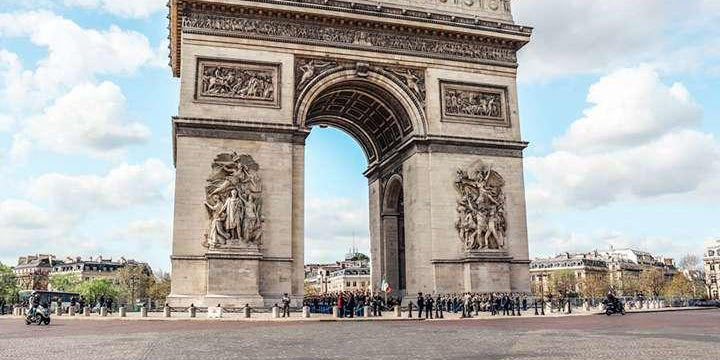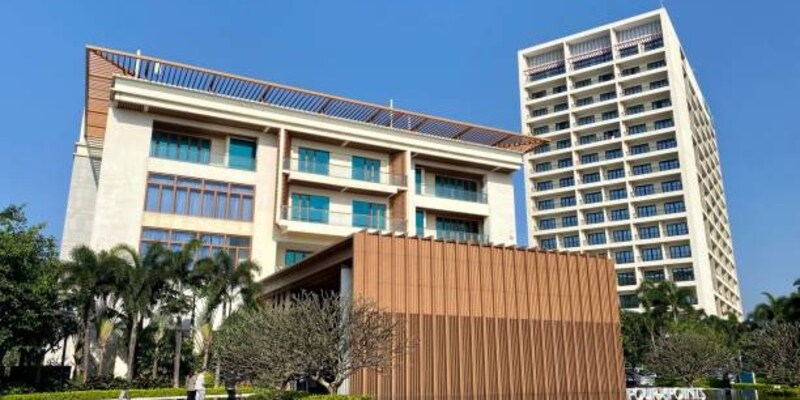How Travel Is Transforming Colombian Wiwa Lifestyles
Mar 21, 2024 By Juliana Daniel
Imagine living in the beautiful green mountains, where every tree, river, and breeze has a family tale. The indigenous Wiwa inhabiting Colombia Sierra Nevada of Santa Marta faces this. Since ancient times, the Wiwa have lived in connection with nature, conserving their rich cultural history. Modernization and external pressures have challenged their lifestyle in recent years. Travel in the Wiwa area remains amazing despite these limitations. More tourists visit the Sierra Nevada de Santa Marta to see its stunning scenery and engage with the Wiwa people.
This tourism is about cultural interaction, mutual respect, and empowerment, not just sightseeing. This article explores how travel transforms Wiwa people. Travel is transforming the Wiwa community's life and providing new avenues, from the rebirth of historic rituals to tourism's economic benefits. Join us as we explore Wiwa land, where every encounter leads to a better future.
The Wiwa People: Guardians Of The Sierra Nevada
The Wiwa people dwell in Colombia's mountain range of the Sierra Nevada de Santa Marta's foggy highlands. This hallowed place has been their home for generations, preserving traditional customs and living peacefully with nature. Wiwa are Sierra Nevada protectors, not simply residents. Their deep connection to the country has protected its natural treasures for ages, sustaining its immense biodiversity in forests and rivers. The Wiwa venerates every mountain, river, and tree as a holy creature worthy of respect and preservation.
They preserve their way of life by balancing between people and the environment via rituals and ceremonies. Despite industrialization and external influences, the Wiwa people protect their ancient grounds. They protect the Sierra Nevada, one of the world's largest biologically diverse ecosystems, for future generations. Join us as we explore the Wiwa people's strong connection alongside the Sierra Nevada along with their crucial role as its guardians andand defenders.
Empowerment Through Sustainable Tourism
The Wiwa people can now share their history and legacy while protecting their customs and way of life thanks to sustainable tourism. Community-led tourism has given the Wiwa more control over their fate, offering economic prospects for their neighbors and families. The Wiwa can share their rituals, tales, and knowledge with interested travelers by welcoming them to their ancestral grounds. Cultural exchange promotes understanding and respect and produces cash for community programs, including education, healthcare, and environmental protection.
Sustainable tourism also allows the Wiwa to reclaim its story and dispel indigenous prejudices. Guided tours, homestays, and artisan workshops help tourists understand Wiwa culture and promote cross-cultural discussion and respect. As guardians of their land, the Wiwa value sustainable tourism, from limiting environmental effects to safeguarding holy places and biodiversity hotspots. By adopting sustainable practices, they protect their way of life and preserve the Sierra Nevada's natural and cultural resources for future generations.
Cultural Exchange And Education
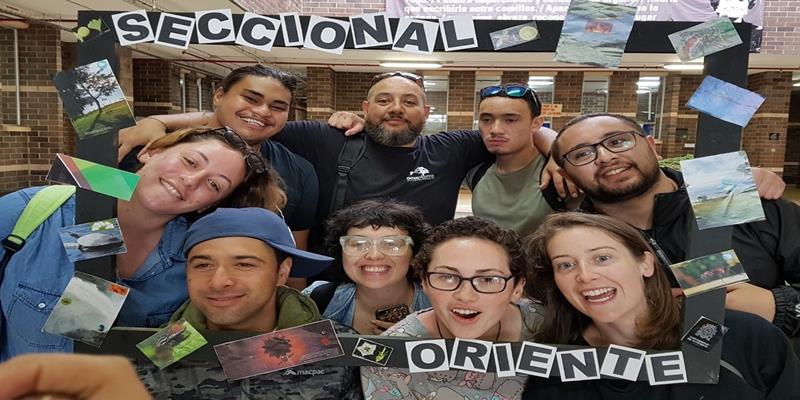
Cultural exchange programs allow the Wiwa to share their lifestyle with international tourists. Travelers may experience Wiwa culture through traditional rituals, artisan workshops, and storytelling in these programs. Cultural interaction helps the Wiwa retain their tradition and pass on inherited knowledge. Sharing their traditions with strangers helps their culture survive in a constantly changing world. Cultural interaction allows Wiwa and tourists to learn and appreciate each other, breaking down boundaries and connecting civilizations.
New ideas and insights from meaningful connections strengthen and broaden both parties' lives. Cultural exchange includes learning about indigenous cultures, such as the Wiwa's struggles and successes. Cultural exchange programs educate tourists about land rights, environmental protection, and cultural preservation, inspiring them to promote indigenous rights and sustainable tourism.
Economic Development And Community Growth
The development of Wiwa's economy and community depends on the success of sustainable tourism. By welcoming tourists who visit their ancestral regions, the Wiwa have been able to develop occupations and entrepreneurial endeavors. Wiwa people can provide for their families and the surrounding area's economy through tourism, including guided tours, artisan goods sales, and cultural performances.
The community's infrastructure, healthcare, and educational advancements are all funded by tourism for the neighborhood. In addition, the Wiwa have been able to control their economic destiny and preserve their cultural autonomy thanks to sustainable tourism. The Wiwa people can maintain their culture while embracing economic growth if they use tourism responsibly.
Challenges And Opportunities
Sustainable tourism helps the Wiwa people achieve economic empowerment and cultural preservation but also presents obstacles. Balancing economic growth, environmental protection, and cultural integrity takes time and effort. Overexploitation of natural resources and cultural commercialization might jeopardize the Sierra Nevada ecology and Wiwa cultural traditions as tourism expands. Despite these limitations, the Wiwa people may work with responsible tourist operators and government authorities to adopt sustainable practices and legislation.
The Wiwa community may benefit from tourism by encouraging ecotourism, conserving holy places, and lobbying for their rights and indigenous peoples. Sustainable tourism also allows the Wiwa to share their rich cultural traditions through ancestral wisdom worldwide, promoting indigenous cultures and environmental care. Through partnership and action, the Wiwa can overcome obstacles and capitalize on sustainable tourism to improve their community and future generations.
Development Programs Run By Local Communities
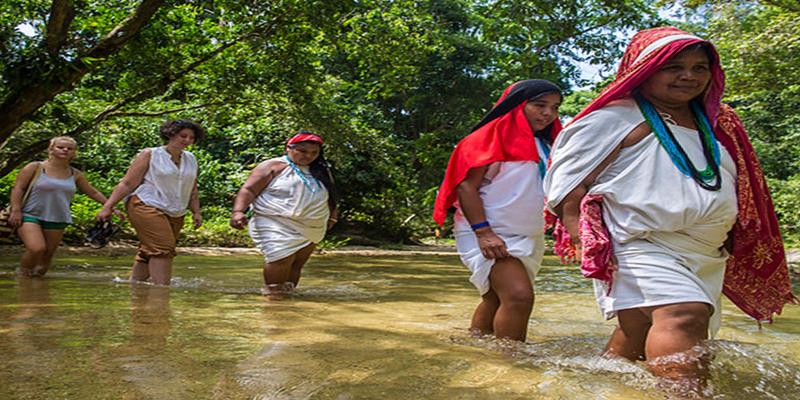
The Wiwa use community-based development to grow their settlements. Together, they built eco-lodges, organic farms, and artisan enterprises. These projects produce cash and protect culture and nature. Wiwa women lead weaving and traditional crafts enterprises, benefiting themselves economically and conserving ancient knowledge.
Visitors study Wiwa customs and live via community tourism. Locals and tourists benefit from this regard and understanding. Education initiatives are also helping Wiwa youngsters expand their literacy and abilities to help their community. These projects show the Wiwa people's dedication to sustainable development, securing a better future and their legacy and natural resources for future generations.
Conclusion
The Wiwa people's sustainable tourism journey is a story of perseverance, empowerment, and cultural resurrection. To preserve their ancestral lands, customs, and way of life, the Wiwa community has used tourism for economic growth and environmental protection. Respect, humility, and admiration for indigenous cultures like the Wiwa are our responsibilities as travelers.
We can strengthen these people and help them enjoy their beauty and knowledge by supporting sustainable tourism and indigenous rights. As they negotiate sustainable tourism's potential and difficulties, the Wiwa reminds us of life's interdependence and the need to preserve Earth's cultural and ecological variety for future generations. Through cooperation and respect, we can make travel a good agent for change, improving lives and landscapes.
